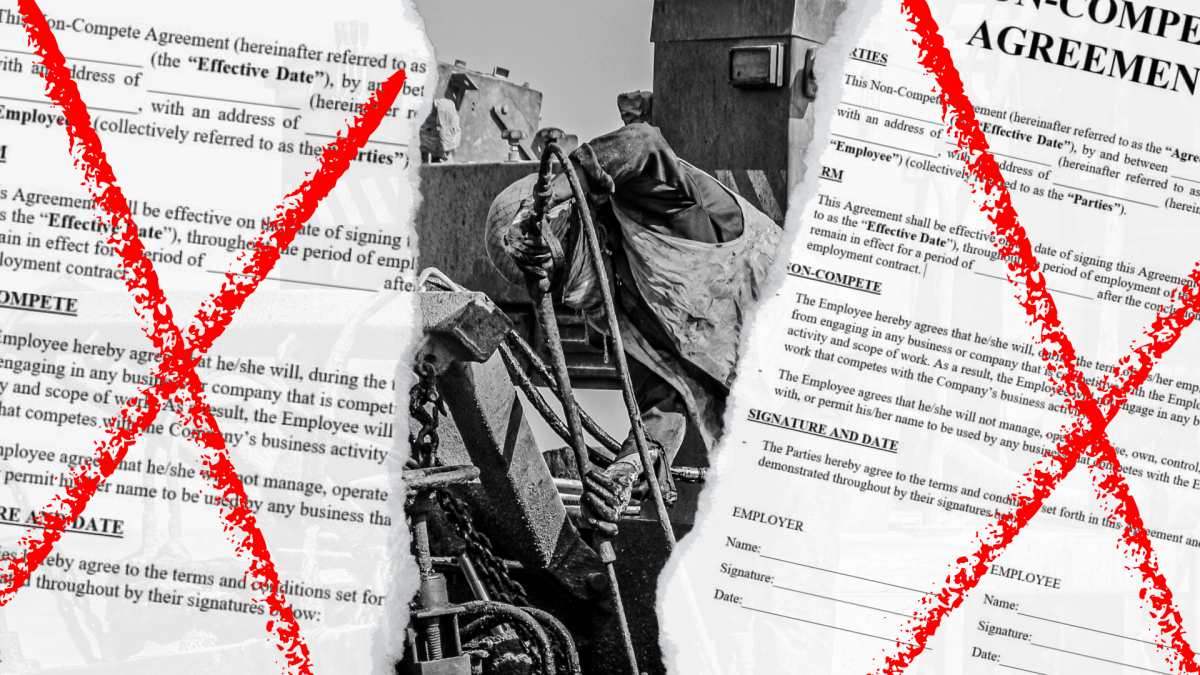On April 23, the Federal Trade Commission (FTC), a government agency that protects consumers, banned the use of noncompetes. Noncompete clauses are common contractual policies that prohibit a company’s employees from working for a competitor or starting a competing business. They’re usually enforced for a specific location and period of time after one’s employment ends, which boxes workers in and causes them undue harm. Fortunately, the FTC found that noncompetes are an “unfair method of competition” and issued a ruling banning them. This ruling expands workers’ rights in an area where change is long overdue, and it should inspire greater scrutiny of other unfair business practices.
As the FTC detailed in their final ruling, significant concern about the harms caused by noncompetes is not a new thing. The FTC acknowledged that existing policies hadn’t adequately mitigated the harm caused by noncompetes, which have been found to harm competition, workers’ livelihoods, and innovation. Research conducted in recent years and cited in the ruling found that the prevalence of noncompetes in the economy hurts everyone, not just workers subject to the clauses themselves. Noncompetes have had a detrimental effect on workers for far too long, and this ruling is an important step forward in the fight against unfair business practices.
Delving deeper into the studies, facts, and first-hand accounts cited in the FTC’s nearly 600-page final ruling, we can easily see that noncompete clauses negatively affect workers in a myriad of ways. While many businesses have characterized noncompetes as an important method to protect company information and secrets, the harm done to workers far outweighs any benefits. For starters, they reduce competition by restricting workers’ ability to get jobs elsewhere or start businesses of their own. Noncompetes give far too much power to large corporations at the expense of workers’ rights, enabling them to curtail employees’ financial futures, careers, and lives. Additionally, noncompetes exacerbate an existing power imbalance between companies and employees. They can even lead to higher prices.
The FTC’s decision to end noncompetes will allow workers to seek other jobs in the market, regardless of whether or not they choose to join a competitor of their original employer. It will restore an increased degree of agency to workers, which is an outcome that everyone should support. Instead of being subjected to messy litigation, economically inferior job prospects, and a lack of autonomy, employees are now more in control of their careers, signifying a vital step towards increased prioritization of workers’ rights. As a result of the ban, wages will likely grow, new businesses will spring up, and an estimated 30 million workers will see increased freedom.
However, the ruling itself has provoked significant controversy, with the US Chamber of Commerce threatening to sue to block the rule. They argue that this decision is a federal overreach and will ultimately harm employers and workers. To this point, I can’t help but question how expanding worker’s job prospects and economic potential is “harming them.” The ruling is characterized as “government micromanagement,” and while the legal future of the ruling is uncertain, the situation draws parallels to past regulation of unfair labor practices. It’s important to balance the interests of businesses and the interests of employees and consumers, but it’s disingenuous to act as though each group’s power has always been equal. Businesses hold far more power than their employees–this ban is a step in the right direction.
Legal concerns about whether or not the FTC has the authority to issue such a ban will continue to play out, but the basic idea of banning or severely restricting noncompetes is extremely important. Instead of fighting to uphold unfair business practices, we should open the door to progress–and that means protecting workers’ rights.









































